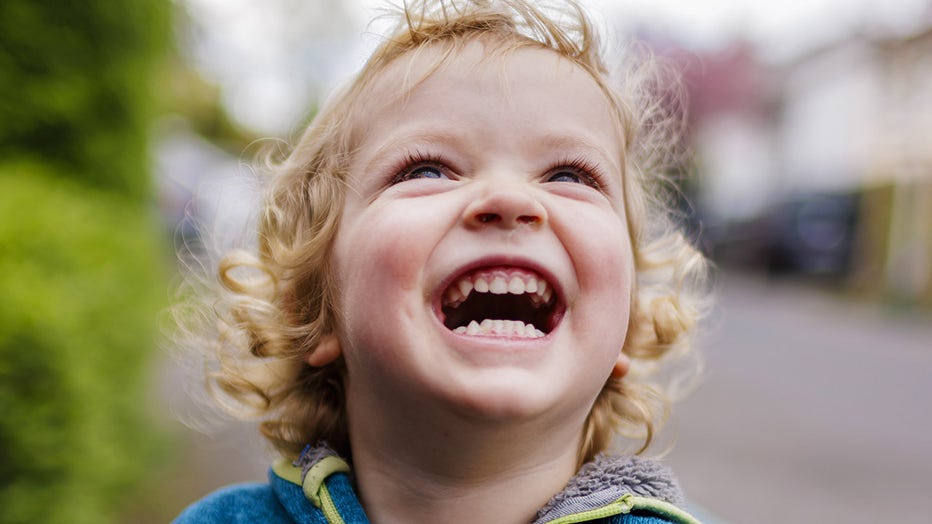Humor can play a role in good parenting, survey suggests
Mom pranks kids with frozen cereal and juice
A California mom decided to prank her kids with frozen cereal and juice as an early April Fool's Day joke.
A new survey suggests that humor may play a positive role in parenting.
Researchers at Penn State College of Medicine developed and administered a 10-item survey to measure people’s experiences of being raised with humor and their views regarding humor as a parenting tool.
A total of 320 adults were surveyed and their responses were aggregated into "Disagree," "Indeterminate" and "Agree," and then further analyzed. Half of the participants (55%) were raised by people who used humor in their parenting.
The research team found that the majority of respondents (80%) agreed that they had a positive relationship with the people who raised them and 72% believed that humor could be an effective parenting tool.

FILE: Child laughing (Credit: Ute Grabowsky/Getty Images)
"Respondents of childbearing/rearing age reported positive views about humor as a parenting tool," the findings, published on July 17 in the journal PLOS One, said.
Participants also said they believed the capacity of humor had more potential benefit than harm (63%) and either used or planned to use humor in parenting their own children (62%).
In addition, significant correlations were found between the use of humor and both the quality of the respondents’ relationships with their parents and assessments of how good a job their parents had done.
RELATED: Most popular baby names inspired by the summer season revealed
It’s important to note that the respondents were predominantly male (64%) and white (76%). There were no statistically significant correlations related to participants’ age. The same was true for gender, with the exception that more females reported they use, or plan to use, the same parenting style as their own parents (62%) compared to males (50%).
The researchers noted that the findings "potentially open the door to a much deeper and broader exploration of how ‘parenting humor’ functions and how it can be appropriately leveraged to enhance the experiences of both children and their parents."
They said future research should examine the ways parents currently use different kinds of humor and how these uses of humor map onto existing knowledge and theory about how humor functions.
This new survey backs up previous research that positive parent-child relationships and greater parental responsiveness to a child’s temperament are correlated with greater child well-being.
Emerging research is also demonstrating how humor appreciation is detectable in infants as young as six months of age.
More recently, humor has become recommended as a strategy for early childhood educators, and other studies off evidence that humor may be an effective coping strategy for families who have children with disabilities.
This story was reported from Los Angeles.

